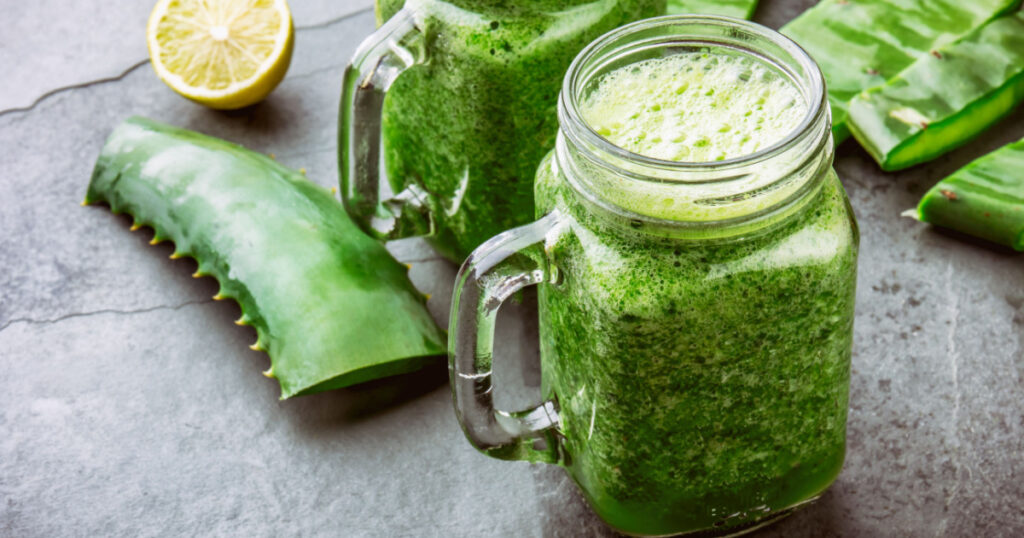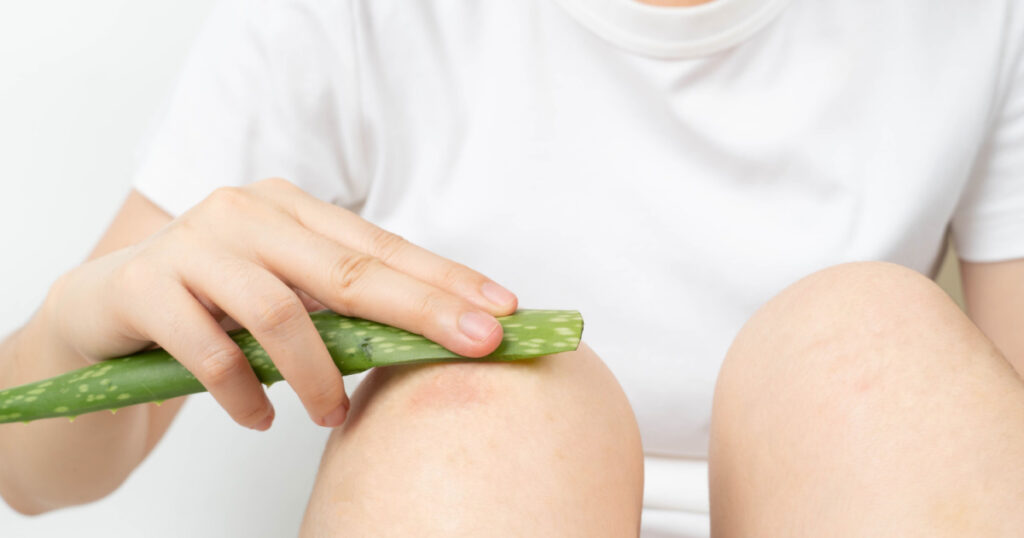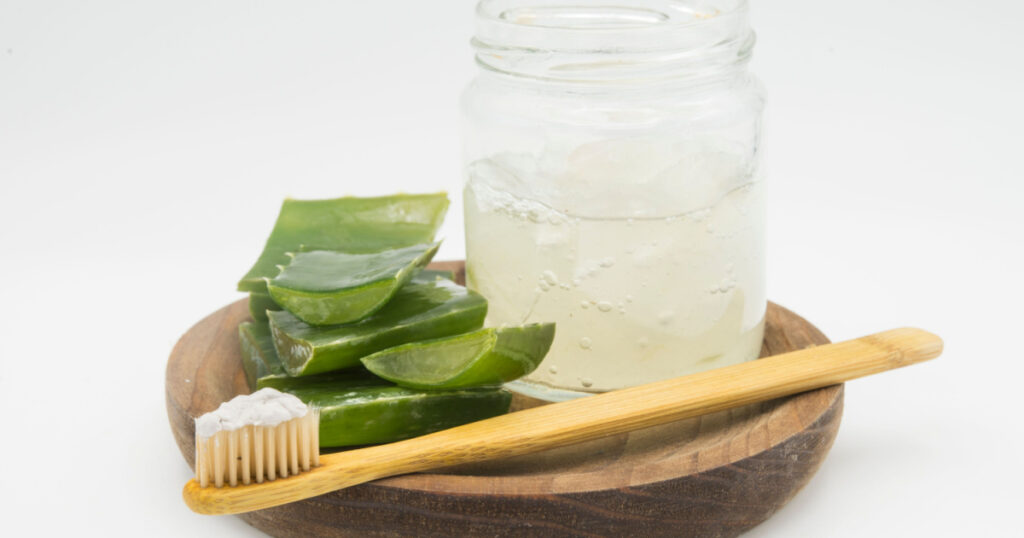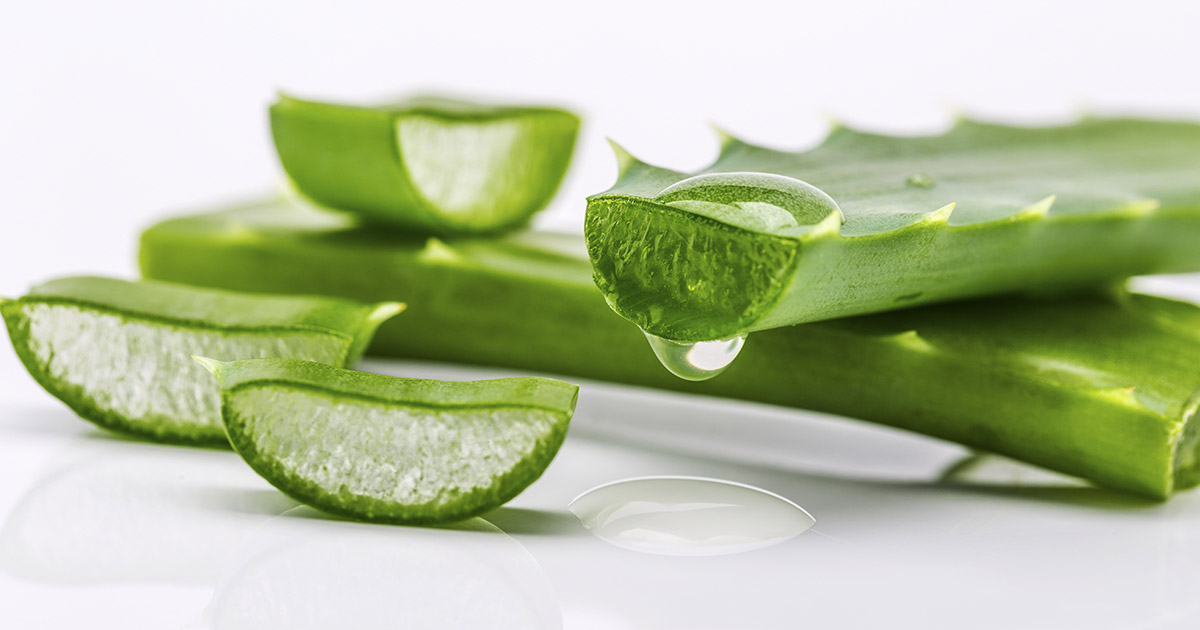The aloe vera plant has been used for centuries for its numerous health benefits. Its succulent leaves contain a gel-like substance that is rich in vitamins, minerals, and various active compounds. In fact, the Egyptians admired this plant so much that they referred to it as “The Plant of Immortality.” Let’s explore the incredible health benefits of aloe vera and uncover why this nickname was given.
The Health Benefits of Aloe Vera: The Plant of Immortality
Aloe Vera is a plant that’s rich in vitamins, minerals, and active compounds. Its succulent leaves contain a gel-like substance that provides many benefits for the human body. In fact, it’s been used for centuries because of its many health benefits. (1) Here are some of the most important ones:
1. Skin Health

Aloe vera is widely known for its exceptional skincare properties. Its gel is commonly used to moisturize and nourish the skin. The plant contains antioxidants that help combat free radicals and reduce the signs of aging. Aloe gel is also known to soothe sunburns, heal wounds, and relieve skin irritations like eczema and psoriasis. (2)
2. Digestive Aid

Aloe can support a healthy digestive system. The plant’s gel contains enzymes that aid food digestion and promote nutrient absorption. It also possesses natural detoxifying properties that help cleanse and regulate the digestive tract, alleviating issues such as constipation, bloating, and indigestion. (3, 4)
3. May Support Immune System

The active compounds found in aloe vera, including polysaccharides and antioxidants, can strengthen the immune system. Aloe gel helps stimulate the production of white blood cells, which are crucial for fighting off infections and diseases. Regular intake or topical application of aloe vera can potentially enhance the body’s natural defenses. (5)
4. Alleviates Inflammation

Aloe contains several anti-inflammatory compounds that can help reduce inflammation in the body. This natural anti-inflammatory effect can benefit conditions like arthritis, joint pain, and other inflammatory disorders. Applying aloe vera gel topically can also help soothe skin inflammation and rashes. (6)
Read: 5 Science-Backed Benefits of Milk Thistle
5. Promotes Hair Health

Aloe vera has been used for centuries to promote hair health and growth. Its gel contains vitamins and minerals that nourish the scalp, promoting healthy hair follicles. Aloe also moisturizes the hair, helping to reduce dryness, dandruff, and scalp irritation. Regular use of aloe can result in stronger, shinier, and healthier-looking hair. (7)
6. A Mouthwash Alternative

Aloe gel can be used as a mouthwash alternative. It has antibacterial properties that help prevent gum disease and tooth decay, and its antimicrobial activity may also help prevent the growth of certain bacteria that cause cavities. Regular use of aloe vera can also reduce plaque formation, which helps prevent bad breath. (8)
7. May Help with Type 2 Diabetes Management

Aloe Vera has blood sugar-lowering properties. Regular use of aloe may help with the management of type 2 diabetes by helping to regulate blood sugar. Research shows that the gel contains elements that can help lower blood sugar levels, which may also reduce insulin resistance in people with type 2 diabetes. (9) A 2015 study suggests that taking aloe vera gel can help people attain better fasting blood glucose levels, as well as reduce body fat and weight (10). However, a 2017 review also noted that while aloe gel has shown some benefit when it comes to lower HBA1C levels in animals, this has not been replicated in humans (11, 12). Speak to your healthcare practitioner before incorporating aloe vera or any supplement for any disease management.
The Plant of Immortality
The Egyptians called aloe vera “The Plant of Immortality” due to its remarkable ability to heal and rejuvenate. They believed in its life-enhancing properties and used it as a staple in their skincare routine. Aloe vera’s ability to thrive in harsh desert conditions and retain its healing properties even when dried out is likely what fascinated the Egyptians and led to its immortal association.
It’s important to note that while aloe vera offers many health benefits, it should be used with caution. Some individuals may have allergic reactions or sensitivities to the plant. As with any natural remedy, it’s advisable to consult with a healthcare professional before incorporating aloe vera into your health routine.
The Bottom Line
Aloe vera is a versatile plant that offers a wide range of health benefits. Its healing properties for the skin, digestive system, immune system, and hair make it a valuable addition to any health regimen. So, whether you want to enhance your skincare routine or improve your overall well-being, consider harnessing the power of this “Plant of Immortality” – aloe vera. Speak with your healthcare practitioner before incorporating any new supplement into your diet (including aloe vera).
Keep Reading: 3 Reasons Why Cat’s Claw Should Be in Your Herbal Medicine Cabinet
Sources
- “ALOE VERA: A SHORT REVIEW.” NCBI. Amar Surjushe, Resham Vasani, and D G Saple. 2008.
- “The Effect of Alo e Vera Clinical Trials on Prevention and Healing of Skin Wound: A Systematic Review.” NCBI. Davood Hekmatpou, PhD, et al. January 2019.
- Skim Resources
- “Aloe vera Is Effective and Safe in Short-term Treatment of Irritable Bowel Syndrome: A Systematic Review and Meta-analysis.” NCBI. Seung Wook Hong, et al. October 2018.
- “Aloe vera: Potential candidate in health management via modulation of biological activities.” NCBI. Arshad H. Rahmani, et al. July – December 2015.
- “The Effect of AloeVera Clinical Trials on Prevention and Healing of Skin Wound: A Systematic Review.” NCBI. Davood Hekmatpou, PhD, et al. January 2019.
- “Aloe Vera.” NCBI. May 24, 2022.
- “Preliminary antiplaque efficacy of aloevera mouthwash on 4 day plaque re-growth model: randomized control trial.” Pubmed. Rajendra Kumar Gupta, et al. April 2014.
- “Antidiabetic activity of Aloe vera L. juice. I. Clinical trial in new cases of diabetes mellitus.” Pubmed. S Yongchaiyudha, et al. November 1996.
- “Evaluation of biological properties and clinical effectiveness of Aloevera: A systematic review” Journal of Traditional and Complementary Medicine. January 2015.
- “Effect of Aloevera on glycemic outcomes in patients with diabetes mellitus: a systematic review protocol” JBI Database of Systematic Reviews and Implementation Reports. September 2017
- “Is Aloe Vera an Effective Treatment for Diabetes?” Healthline. September 20, 2019.

